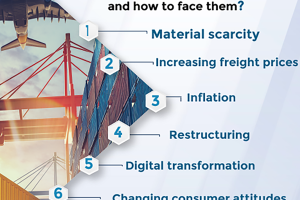Is Managerial Accounting Hard? The Real Truth Behind the Struggles
Is managerial accounting hard? And before we dive deeper, it’s essential to understand what is the difference between financial accounting and managerial accounting to see why this course often feels like a shift in mindset.
You’ve just passed your financial accounting course, and now you’re stepping into managerial accounting. But you’re hearing whispers:
“It’s harder.”
“It’s more abstract.”
“There’s a lot of analysis involved.”
So let’s address it directly: Is managerial accounting hard?
This article breaks down what makes managerial accounting challenging (or not), who tends to struggle with it, and how you can overcome the obstacles and actually enjoy it.
What Is Managerial Accounting, Really?
Managerial accounting is the process of collecting, analyzing, and interpreting financial data to help management make informed business decisions. Unlike financial accounting, which looks backward, managerial accounting looks forward planning, budgeting, forecasting, and strategizing.
Why Do Many Students Find Managerial Accounting Hard?
Let’s be honest: some learners find it overwhelming. Here’s why:
1. It’s Not Just Numbers It’s Strategy
You don’t just record numbers. You interpret them. You’re expected to ask:
- What do these numbers mean for the future?
- How can we optimize costs?
- What’s our break-even point?
This level of thinking feels abstract for those used to clear-cut, rule-based subjects.
2. No Fixed Rules Like GAAP
Financial accounting relies on established standards (like GAAP or IFRS).
But managerial accounting?
It’s flexible. There are no strict formats, which can be confusing if you’re someone who prefers structure.
3. Real Life Application Is Key
It’s less about memorizing formulas and more about solving real world problems.
For example:
- How do you prepare a cash budget for a startup?
- How do you estimate total revenue under uncertainty?
LSI keyword: Struggling in managerial accounting often comes from this shift from memorization to application.
But Is It Actually Harder Than Financial Accounting?
That depends on your learning style.
| If you prefer.. | You might find.. |
| Clear rules and structures | Financial accounting easier |
| Flexible thinking & strategy | Managerial accounting more intuitive |
| Memorizing steps | Financial accounting better |
| Solving real-life problems | Managerial accounting more enjoyable |
Many learners say:
Financial accounting is like following a recipe.
Managerial accounting is like inventing your own dish.
Common Challenges in Managerial Accounting (and How to Solve Them)
Challenge 1: Understanding Abstract Concepts
- Solution: Use real life case studies. Tie every concept to a business scenario.
Challenge 2: Too Many Formulas, Not Enough Context
- Solution: Focus on why you’re using a formula, not just how.
Challenge 3: Data Interpretation Anxiety
- Solution: Practice simple analysis first, like break even, before jumping to forecasting.
Tips to Make Managerial Accounting Easier
1. Visualize the Problem
Use flowcharts, graphs, and decision trees to understand cost behavior or budgeting.
2. Focus on Concepts First, Math Second
Math is only a tool. The real skill is interpreting results to guide decisions.
3. Work with Business Scenarios
Use examples from your own life or workplace:
How would you build a budget for your personal savings?
How would you reduce costs in a small event you’re planning?
How Managerial Accounting Applies to Your Personal Life
You already use managerial thinking when you:
- Budget your monthly expenses.
- Compare offers and optimize your spending.
- Forecast your savings for a trip.
Many professionals eventually want to grow beyond traditional reporting roles. If you’re one of them, you might be wondering, how to get promoted from financial accounting to managerial accounting?
LSI keyword: how to step up from financial accounting to managerial accounting means applying the mindset, not just the math.
Resources That Can Help You Master It
- Courses (like HPA’s programs) that focus on application, not just theory.
- Practice problems with real world cases.
- Study groups for shared insights.
Get Practical with HPA Where Real Learning Meets Real Results
At HPA, we don’t just deliver training we transform careers. Our programs are built to bridge the gap between theory and real-world business needs. Whether you’re a student trying to pass your course or a professional stepping into a managerial role, HPA equips you with skills you can apply from day one.
Why HPA Stands Out:
- Hands-On Learning: We don’t teach accounting in isolation we connect it directly to business strategy, financial planning, and decision-making.
- Real Case Studies: Learn through real-world scenarios you can relate to budgeting for actual companies, forecasting for real projects, analyzing performance like a finance manager.
- Taught by Experts: Our instructors are not just academics they’re experienced professionals who’ve worked in the field and know what it takes to succeed.
- Flexible, Career Driven Training: Whether you’re learning online, on-site, or with your team, HPA programs are designed for maximum impact in minimal time.
If you’re serious about stepping up in accounting, finance, or management HPA is where your growth begins.
FAQ: Common Questions About Managerial Accounting ❓
Q: Does managerial accounting involve a lot of math?
No advanced math. Mostly basic arithmetic and algebra. The hard part is interpreting, not calculating.
Q: How do you pass a managerial accounting class?
- Focus on case based learning.
- Understand the purpose of each topic.
- Practice consistently, especially on budgeting and analysis.
Q: Is managerial accounting reactive or proactive?
Proactive. It helps managers plan ahead and take strategic decisions.
Q: Why do people find it hard?
Mostly because they expect it to be like financial accounting but it’s not. It requires a shift in thinking: from reporting to decision-making.
Conclusion:
It’s Not About “Hard” or “Easy” It’s About Mindset
Managerial accounting can be challenging, but it’s also one of the most empowering tools in the business world.
Once you shift your mindset and start thinking like a decision-maker, it becomes less about the numbers and more about strategy, impact, and growth.



